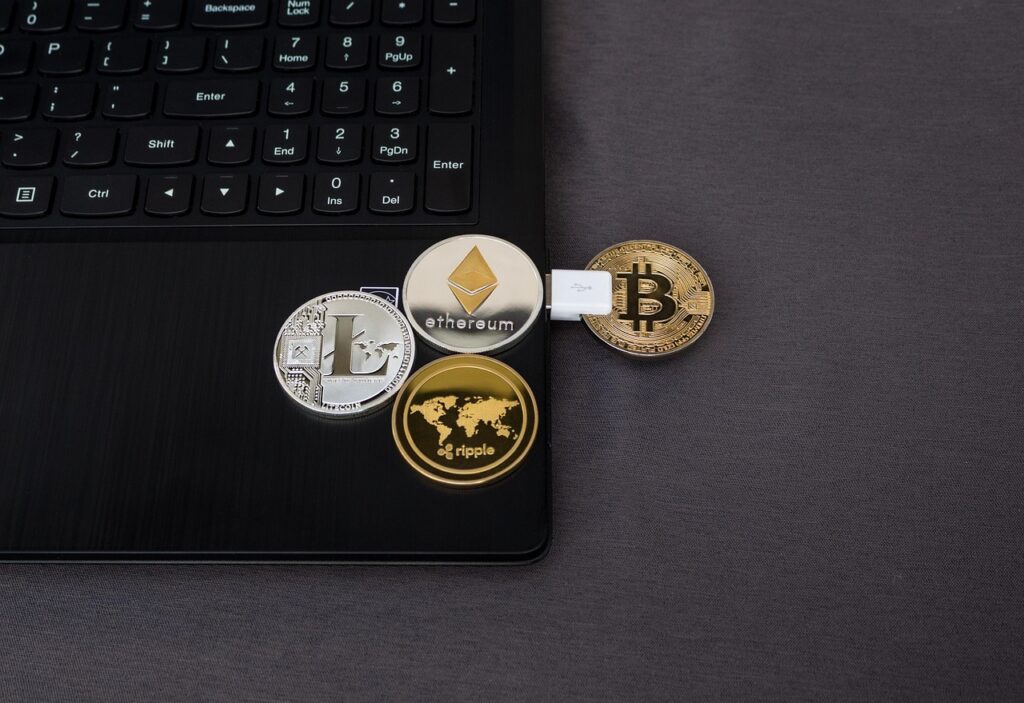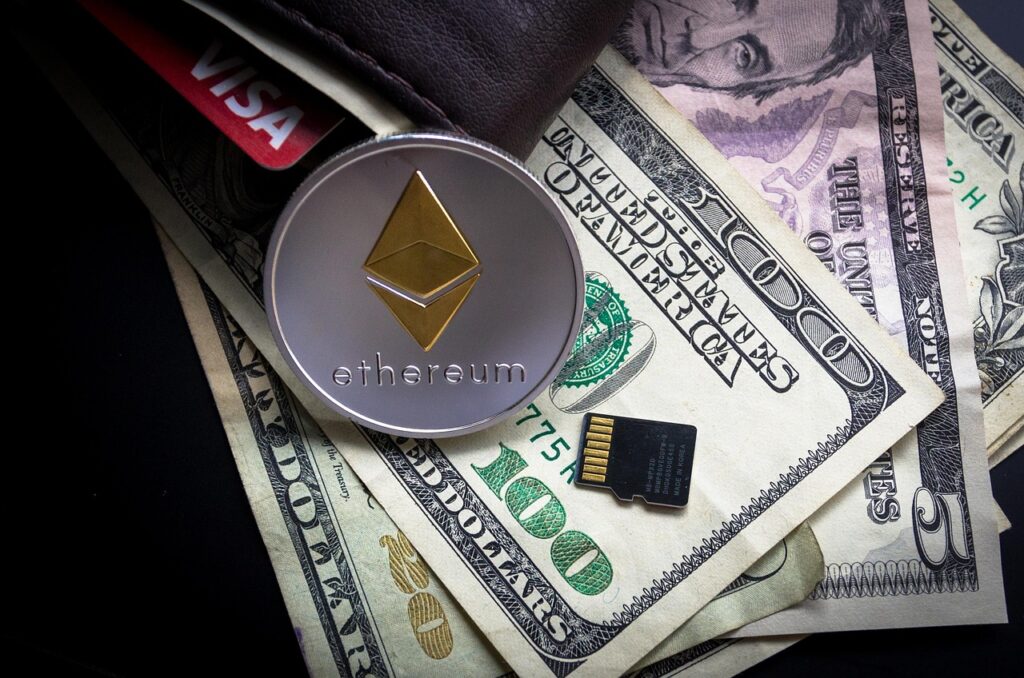The business world always looks for ways to make things better, especially when it comes to getting what they need. This process, called procurement, can be complicated. It has many steps, like finding suppliers, making deals, and paying for things. Historically, this has involved a lot of paperwork and manual checks. Now, a new technology called blockchain is changing how companies think about these tasks. People are asking: What is the role of blockchain in enterprise procurement? This technology could make things more open, safer, and faster. It might even help businesses save money and work better with their partners. We will look at how blockchain fits into procurement and what it means for companies.
Table of Contents
- 1 Introduction to Blockchain in Enterprise Procurement
- 2 Enhancing Supply Chain Transparency with Blockchain
- 3 Leveraging Smart Contracts for Automated Procurement
- 4 Achieving Cost Efficiency through Blockchain Integration
- 5 Consider this simplified example of how blockchain can impact costs:
- 6 Improving Regulatory Compliance and Auditability
- 7 Enhancing Supplier Relationship Management
- 8 Building Trust and Transparency
- 9 Streamlining Communication
- 10 Improving Performance Tracking
- 11 Facilitating Collaborative Innovation
- 12 Facilitating Ethical and Sustainable Procurement
- 13 Integrating Blockchain with Emerging Technologies
- 14 Blockchain and IoT Integration
- 15 AI and Blockchain Synergies
- 16 Blockchain and Cloud Computing
- 17 Blockchain and Big Data Analytics
- 18 Overcoming Challenges in Blockchain Adoption
- 19 Future Trends in Blockchain-Enabled Procurement
- 20 AI and Blockchain Convergence
- 21 Increased Focus on Sustainability
- 22 Interoperability Between Blockchains
- 23 Tokenization of Assets
- 24 Decentralized Autonomous Organizations (DAOs)
- 25 Wider Adoption of Smart Contracts
- 26 Frequently Asked Questions
- 27 What is blockchain in procurement?
- 28 How does blockchain improve procurement?
- 29 What are smart contracts, and how do they work in procurement?
- 30 Can blockchain make procurement more secure?
- 31 What are the main challenges of using blockchain in procurement?
- 32 How does blockchain help with following rules and regulations?
- 33 How does blockchain affect relationships with suppliers?
- 34 What is the best way to start using blockchain in procurement?
Introduction to Blockchain in Enterprise Procurement
Enterprise procurement is undergoing a significant shift, and blockchain technology is at the forefront of this transformation. It’s not just about the hype; blockchain offers tangible solutions to long-standing problems in supply chain management, transparency, and security. Think of it as a shared, immutable ledger that all parties in a procurement process can access, creating a single source of truth.
Blockchain in procurement acts as a digital bridge, securely tracking goods, automating tasks, and potentially reducing fraud.
Blockchain’s decentralized nature means no single entity controls the information, making it harder to tamper with data. This is especially important in complex supply chains where multiple parties are involved, and trust is paramount. It’s about creating a system where everyone is on the same page, with verifiable records of every transaction.
Here are some key aspects of blockchain’s role in enterprise procurement:
- Enhanced Transparency: Every transaction is recorded on the blockchain, providing a clear audit trail.
- Improved Security: The immutable nature of blockchain makes it difficult to alter or falsify records.
- Increased Efficiency: Automation through smart contracts can streamline processes and reduce manual errors.
Blockchain brings transparency, security, and trust to procurement. It helps businesses verify transactions and reduce fraud across the entire supply chain.
One area where blockchain is making a real impact is in [blockchain invoicing]. Traditional invoicing processes can be slow, error-prone, and susceptible to fraud. Blockchain-based invoicing systems can automate invoice creation, verification, and payment, reducing delays and improving accuracy. It’s about moving away from paper-based processes and embracing a more efficient, secure, and transparent way of doing business.
Enhancing Supply Chain Transparency with Blockchain
Supply chains can be complex, involving many different companies and steps. It’s often hard to see exactly where a product is, who handled it, and what conditions it was kept in. Blockchain technology offers a way to fix this by making supply chains more transparent. Blockchain creates a shared, unchangeable record of every transaction, so everyone involved can see the same information.
Think of it like this: instead of each company keeping its records, everyone uses the same digital ledger. When something changes – a product moves, a payment is made – it’s recorded on the blockchain. This record can’t be changed or deleted, so you always have an accurate history. This helps build trust and reduces the risk of fraud. The blockchain’s ledger shows all stakeholders when each step occurred.
Here are some ways blockchain improves supply chain transparency:
- Tracking Products: You can track a product from its origin to the customer, seeing every step of the journey.
- Verifying Authenticity: It’s easier to check if a product is genuine and hasn’t been tampered with.
- Reducing Delays: With better visibility, you can spot potential problems early and take action to avoid delays.
Blockchain’s use of one-way encryption and multiple copies of the ledger makes it nearly impossible to create fraudulent entries or to change existing entries, helping ensure security. However, the technology’s intrinsic transparency can raise privacy issues, especially when public blockchains are used. Two solutions are the use of private blockchains that restrict access to authorized participants and hashing technology that protects sensitive data.
Blockchain can also help with recalls. If there’s a problem with a product, you can quickly identify which batches are affected and where they are located. This can save time and money, and it can also protect consumers. Integrating a blockchain for supply chain management comes with human challenges, including putting labeling processes in place and getting all stakeholders to adopt the technology uniformly.
Leveraging Smart Contracts for Automated Procurement
Smart contracts are changing how procurement works. Instead of relying on manual processes, companies can use these self-executing agreements to automate tasks. It’s like having a digital handshake that automatically follows through on its promises.
Smart contracts are tamper-proof documents where your agreements are stipulated. They can be concluded by two or more parties, and they can execute themselves if they meet all the pre-set terms and conditions.
Think about it: no more endless email chains, fewer chances for human error, and faster turnaround times. It’s a win-win for both buyers and suppliers.
Here’s how smart contracts are making a difference:
- Automated Payments: Once goods are received and verified, payments are automatically released. This speeds up the payment cycle and keeps suppliers happy.
- Streamlined Approvals: Smart contracts can automate approval workflows, reducing bottlenecks and delays.
- Improved Compliance: Every action is logged on the blockchain, creating a clear audit trail for compliance purposes.
Using smart contracts in procurement can cut down on manual work and speed up transactions. More businesses will automate procurement steps – from approvals to payments – using smart contracts.
Smart contracts are capable of verifying themselves, checking their performance of their condition, and ensuring that the terms in the contracts are fulfilled. Additionally, it can automatically release payment to your supplier if the contract is completed. Smart contracts are able to cover end-to-end transactions between multiple parties in the whole supply chain. Also, the compliance documents are easier to manage.
Here’s a simple table illustrating the impact:
| Feature | Traditional Procurement | Smart Contract Procurement |
| Payment Speed | Days/Weeks | Hours/Days |
| Error Rate | High | Low |
| Transparency | Limited | High |
| Automation Level | Low | High |
Strengthening Data Security and Integrity
Data security is a big deal, especially when you’re talking about enterprise procurement. Think about all the sensitive information that gets passed around: supplier details, contracts, pricing, and so on. A traditional system can be a bit like a house with too many doors and windows – lots of ways for something to go wrong. Blockchain offers a way to lock things down.
Blockchain’s decentralized and immutable nature makes it a strong contender for improving data security and integrity in procurement processes. It’s like having a digital ledger that everyone can see, but no one can secretly change.
Here’s why it matters:
- Tamper-Proof Records: Once data is on the blockchain, it’s extremely difficult to alter. This creates a reliable audit trail.
- Reduced Risk of Fraud: Because every transaction is recorded and verified, it’s harder for fraudulent activities to go unnoticed.
- Improved Data Accuracy: With multiple parties verifying information, the chances of errors are reduced.
Implementing blockchain isn’t a magic bullet, but it does provide a solid foundation for building more secure and trustworthy procurement systems. It’s about creating a system where everyone can have confidence in the data they’re seeing.
Consider this comparison:
| Feature | Traditional Procurement | Blockchain-Enabled Procurement |
| Data Storage | Centralized | Decentralized |
| Data Modification | Easily Altered | Tamper-Proof |
| Security Level | Vulnerable | Highly Secure |
For example, blockchain is revolutionizing software development by enhancing security, enabling decentralized applications, and automating agreements with smart contracts. This is similar to how it can secure procurement data.
With blockchain, you can also implement features like:
- Access Controls: Restrict who can view or modify certain data.
- Encryption: Protect sensitive information from unauthorized access.
- Automated Verification: Use smart contracts to automatically verify the authenticity of documents and transactions.
Ultimately, blockchain helps create a more secure and reliable procurement process, reducing risks and improving trust among all parties involved. It’s about moving from a system of “trust, but verify” to one of “trust because it’s verified.”
Achieving Cost Efficiency through Blockchain Integration
Blockchain tech isn’t just a buzzword; it can save companies money in procurement. Think about it: less paperwork, fewer errors, and faster processes. It’s not a magic bullet, but it can streamline things and cut costs.
Blockchain helps procurement teams eliminate inefficiencies, reduce risk, and gain real-time visibility across the supply chain.
- Reduced administrative overhead: Automating tasks like invoice processing and payments cuts down on manual labor.
- Lower transaction costs: Eliminating intermediaries and streamlining processes reduces fees.
- Improved accuracy: Fewer errors mean less rework and fewer disputes.
Implementing blockchain requires upfront investment, but the long-term cost savings can be significant. It’s about weighing the initial costs against the potential for increased efficiency and reduced errors down the line. Companies need to carefully assess their needs and determine if the investment is worthwhile.
One of the biggest advantages is the potential for faster payments. Smart contracts can automatically release payments once pre-defined conditions are met, like delivery confirmation. This not only speeds up the payment cycle but also improves cash flow and strengthens supplier relationships. Plus, with every procurement action logged and time-stamped, compliance becomes easier, creating a clear audit trail that simplifies adherence to internal policies and external regulations.
Consider this simplified example of how blockchain can impact costs:
| Process | Traditional Cost | Blockchain Cost | Savings |
| Invoice Processing | $25 per invoice | $5 per invoice | $20 |
| Dispute Resolution | $100 per dispute | $20 per dispute | $80 |
Improving Regulatory Compliance and Auditability
Keeping up with regulations and making sure audits go smoothly can be a real headache in procurement. Blockchain offers some interesting ways to make this easier. It’s not a magic bullet, but it can help.
One of the biggest problems is that data is often scattered across different systems. This makes it hard to get a clear picture of what’s going on, especially when auditors come knocking. Blockchain, with its real-time transaction recording, can create a single, shared source of truth.
Here’s how blockchain can help:
- Immutable Audit Trails: Every transaction is recorded on the blockchain and can’t be changed. This creates a permanent record of everything that happened, making audits much easier.
- Automated Compliance Checks: Smart contracts can be programmed to automatically check if transactions meet certain regulatory requirements. This can help prevent errors and ensure compliance.
- Improved Data Accuracy: Because all parties share the same data, there’s less chance of errors or discrepancies. This can save time and money during audits.
Using blockchain for regulatory compliance isn’t about replacing existing systems overnight. It’s about adding a layer of transparency and security that makes it easier to meet regulatory requirements and pass audits.
Think about it like this. Instead of spending weeks gathering documents and trying to reconcile different versions of the truth, auditors can simply access the blockchain and see exactly what happened, when it happened, and who was involved. This can save a ton of time and reduce the risk of errors.
Here’s a quick comparison of traditional vs. blockchain-based procurement:
| Feature | Traditional Procurement | Blockchain-Based Procurement |
| Data Storage | Centralized, often siloed | Decentralized, shared |
| Audit Trail | Difficult to trace, manual | Immutable, automatic |
| Compliance | Manual checks, prone to error | Automated, more reliable |
Blockchain’s ability to provide a transparent and tamper-proof record of all transactions is a game-changer for regulatory compliance and auditability. It’s not a perfect solution, and there are still challenges to overcome, but the potential benefits are significant.
Enhancing Supplier Relationship Management
Good supplier relationships are super important for any business. They can affect everything from product quality to how quickly you can get things done. Blockchain tech can really change how companies handle these relationships, making things more open and trustworthy.
Building Trust and Transparency
Blockchain can help build trust between you and your suppliers. Because every transaction is recorded on a shared, unchangeable ledger, everyone can see what’s going on. This means less arguing about invoices and deliveries. It’s like having a single source of truth that everyone agrees on. This can be especially helpful when dealing with lots of different suppliers.
Streamlining Communication
Communication is key in any relationship, and that includes the one you have with your suppliers. Blockchain can make this easier by providing a secure platform for sharing information. Think about things like purchase orders, shipping details, and payment confirmations. All of this can be shared quickly and securely, reducing delays and misunderstandings. Plus, it’s all in one place, so you don’t have to go digging through emails to find what you need. This can improve vendor management.
Improving Performance Tracking
It’s important to know how well your suppliers are doing. Blockchain can help with this by tracking their performance in real-time. You can see things like delivery times, product quality, and compliance with contracts. This data can help you make better decisions about which suppliers to work with and how to improve your relationships with them. It also makes it easier to spot problems early on, before they become big issues.
Facilitating Collaborative Innovation
When you have good relationships with your suppliers, you can work together to come up with new ideas and improve existing products. Blockchain can help with this by providing a secure platform for sharing sensitive information. This means you can share things like design specs and market research without worrying about them falling into the wrong hands. This can lead to some really cool innovations that benefit everyone involved. Think about it: better products, more efficient processes, and stronger partnerships. It’s a win-win.
Using blockchain for supplier relationship management isn’t just about making things more efficient. It’s about building stronger, more trustworthy relationships that can help your business grow. It’s about creating a supply chain where everyone is on the same page and working towards the same goals.
Here’s a simple example of how blockchain could track supplier performance:
| Metric | Current System | Blockchain System |
| Delivery Time | 5 days average | 3 days average |
| Defect Rate | 2% | 0.5% |
| Contract Compliance | Hard to track | Easily verifiable |
By using blockchain, you can see a clear improvement in supplier performance. This data can then be used to improve regulatory compliance and make better decisions about which suppliers to work with in the future.
Here are some ways blockchain can help with supplier relationships:
- Faster payments
- Reduced disputes
- Better visibility into the supply chain
- Improved trust and transparency
Facilitating Ethical and Sustainable Procurement

Blockchain tech can really help with making sure procurement is done ethically and sustainably. It’s not just about cutting costs; it’s also about making responsible choices that benefit everyone involved, from suppliers to the environment. It’s about time we started thinking about the bigger picture, right?
One of the coolest things about blockchain is how it can track products from start to finish. This means you can see exactly where something came from, how it was made, and who handled it along the way. This is super important for things like sustainable procurement, where you want to make sure you’re not supporting unethical practices like child labor or environmental damage.
Here’s why blockchain is a game-changer:
- Transparency: Everyone on the chain can see the data, so there are fewer places to hide shady stuff.
- Traceability: You can follow a product’s journey from raw materials to the final product.
- Accountability: It’s easier to hold suppliers accountable for their actions.
Using blockchain for ethical procurement isn’t just a nice-to-have; it’s becoming a must-have. Consumers are demanding more transparency, and companies that can provide it will have a big advantage. Plus, it’s just the right thing to do.
Think about conflict minerals, for example. With blockchain, you can verify that the minerals used in your products didn’t come from conflict zones. Or consider fair trade coffee. Blockchain can help you ensure that farmers are getting a fair price for their beans. It’s all about building trust and making sure everyone benefits.
It’s not always easy, though. Getting everyone on board with blockchain can be a challenge, especially if you have a lot of suppliers. But the benefits are worth it. By using blockchain, you can create a more ethical and sustainable supply chain that you can be proud of. And that’s something that everyone can get behind. Plus, it can really improve supplier relationship management in the long run.
Integrating Blockchain with Emerging Technologies
Blockchain isn’t just a standalone solution anymore; it’s becoming part of a bigger tech ecosystem. Think of it as a piece of a puzzle that fits with other innovations to make enterprise procurement way better. It’s about combining blockchain’s strengths with other technologies to create something even more powerful.
Blockchain and IoT Integration
IoT devices are data-generating machines. Imagine sensors on shipping containers constantly monitoring temperature and location. When you link that to blockchain, you get a super secure and transparent system. The data from those IoT sensors can be automatically recorded on a blockchain, creating an immutable record. This means everyone with permission can track the shipment’s condition and location with confidence. Plus, smart contracts can trigger actions based on the IoT data, like automatically paying the trucking company when the goods arrive on time and in good condition. It’s all about automation and trust.
AI and Blockchain Synergies
AI can analyze the huge amounts of data stored on a blockchain to find patterns and make predictions. For example, AI could predict potential supply chain disruptions based on historical data and real-time information from the blockchain. This allows companies to proactively address issues before they become major problems. Also, AI can help automate tasks like invoice processing and contract management, freeing up human employees to focus on more strategic activities. It’s a win-win.
Blockchain and Cloud Computing
Cloud computing provides the infrastructure needed to run blockchain applications at scale. Instead of investing in expensive hardware, companies can use cloud services to deploy and manage their blockchain networks. This makes it easier and more affordable to implement blockchain solutions. Plus, cloud platforms often offer tools and services that simplify the development and deployment of blockchain applications. It’s all about accessibility and scalability.
Integrating blockchain with other technologies isn’t always easy. It requires careful planning and a good understanding of how these technologies work together. But the potential benefits are huge, including increased efficiency, improved transparency, and reduced costs.
Blockchain and Big Data Analytics
Blockchain systems generate a lot of data, but on their own, it’s not always easy to extract insights. That’s where big data analytics comes in. By applying big data techniques to blockchain data, companies can identify trends, optimize processes, and make better decisions. For example, they can analyze transaction data to identify bottlenecks in the supply chain or track the performance of suppliers. It’s about turning data into actionable intelligence.
Here’s a simple table illustrating the potential benefits of integrating blockchain with other technologies:
| Technology | Benefit | Example |
| IoT | Enhanced tracking and transparency | Real-time monitoring of goods in transit |
| AI | Improved decision-making | Predictive analytics for supply chain disruptions |
| Cloud | Scalability and cost-effectiveness | Deploying blockchain networks on cloud platforms |
| Big Data | Actionable insights | Identifying trends in transaction data |
Overcoming Challenges in Blockchain Adoption
Blockchain tech sounds amazing, right? But getting it up and running in enterprise procurement isn’t always a walk in the park. There are some hurdles to clear. It’s not just about the tech itself; it’s also about people, processes, and a whole lot of other stuff.
One of the biggest things I’ve seen is just getting everyone on board. It’s a new way of doing things, and change can be tough. Plus, there’s the whole question of how well it plays with the systems you already have. Let’s be real, most companies aren’t starting from scratch. They’ve got ERP systems and other tools that they rely on. Making everything work together smoothly? That’s a challenge.
- Lack of Technical Expertise: Not everyone on the procurement team is a blockchain guru. You might need to bring in some outside help or invest in training.
- Integration Headaches: Getting blockchain to play nice with your existing systems can be tricky. APIs are your friend, but even then, it can be a headache.
- Resistance to Change: People get used to doing things a certain way. Convincing them that blockchain is better can be an uphill battle. Show them how blockchain simplifies workflows.
It’s important to remember that blockchain adoption is a journey, not a destination. Start small, learn as you go, and don’t be afraid to ask for help. It’s all about finding the right approach for your specific needs and circumstances.
Another thing to keep in mind is the cost. Blockchain implementations can be expensive, especially if you’re doing custom development. It’s a good idea to start with a pilot project to prove the ROI before you go all in. And of course, there’s the regulatory side of things. Regulations around blockchain and smart contracts are still evolving, so you need to stay on top of that. Data privacy is also a big concern, especially when you’re dealing with sensitive procurement data. Using private blockchains with role-based access can help with that.
Here’s a quick rundown of some common challenges and potential solutions:
| Challenge | Solution |
| High Initial Investment | Start with a focused pilot project to demonstrate ROI. |
| Integration with Existing Systems | Use APIs or select blockchain tools designed for compatibility. |
| Regulatory Uncertainty | Stay aligned with legal guidance and focus on compliant use cases. |
| Data Privacy Concerns | Use private blockchains with role-based access and encryption. |
| Lack of Technical Expertise | Work with external experts or choose platforms with easy onboarding and support. |
Real-World Applications of Blockchain in Procurement
Blockchain isn’t just a buzzword anymore; it’s showing up in real procurement scenarios, solving problems, and making things better. Let’s look at some examples of how companies are using it.
Many companies are already using blockchain to solve real procurement challenges.
- Supplier Verification: Blockchain is used to verify supplier credentials, like certifications and licenses. This makes onboarding easier and reduces the risk of working with shady vendors.
- Automated Payments: Smart contracts are automating payments when deliveries are confirmed. This cuts down on delays and disputes, especially in complex supply chains.
- Improved Tracking: Blockchain helps track goods in real-time, reducing losses and improving efficiency.
Blockchain brings transparency, security, and trust to procurement. It helps businesses verify transactions, reduce fraud, and gain real-time visibility across the entire supply chain.
One area where blockchain shines is in informed sourcing decisions. With all supplier transactions recorded on a blockchain, it’s easier to assess performance over time. Procurement teams can identify reliable vendors, detect issues early, and make better decisions. This leads to stronger supplier relationships and better overall procurement outcomes. It also helps with compliance documents and ensures that all suppliers meet the required standards. This is especially important in industries with strict regulations.
Future Trends in Blockchain-Enabled Procurement
Blockchain tech is still changing, and its effect on procurement is expected to grow. Let’s look at what the future might hold.
AI and Blockchain Convergence
Expect to see AI and blockchain working together more. AI can help analyze the huge amounts of data on the blockchain to find patterns, predict risks, and make better decisions. This could mean smarter supplier selection and better risk management.
Increased Focus on Sustainability
Blockchain can help track the origin and journey of products, making it easier to ensure ethical and sustainable practices. Consumers and businesses care more about this, so blockchain’s role in proving sustainability will become more important.
Interoperability Between Blockchains
Right now, different blockchains often can’t talk to each other. In the future, we’ll likely see more efforts to make them work together. This would allow for smoother data sharing and collaboration across different supply chains and networks. This interoperability is key for widespread adoption.
Tokenization of Assets
Imagine turning physical assets into digital tokens on a blockchain. This could make it easier to trade, track, and manage assets throughout the supply chain. It could also open up new ways to finance procurement activities.
Decentralized Autonomous Organizations (DAOs)
DAOs are organizations run by rules coded into a blockchain. They could be used to automate procurement processes and make them more transparent. Think of a DAO that automatically selects suppliers and manages contracts based on pre-set criteria.
Blockchain is not just a technology; it’s a shift in how businesses think about trust and collaboration. As the technology matures, we’ll see even more innovative ways to use it in procurement.
Wider Adoption of Smart Contracts
More companies will use smart contracts to automate procurement steps, from approvals to payments. This will cut down on manual work and reduce errors. Smart contracts can also help ensure that contracts are followed correctly.
Here’s a simple example of how smart contracts could automate payments:
| Event | Action |
| Goods Delivered | Trigger the smart contract |
| Quality Check Approved | Automatic payment to the supplier |
| Payment Completed | Record a transaction on the blockchain |
Enhanced Data Security
Blockchain’s security features will become even more important as cyber threats increase. Using blockchain can help protect sensitive procurement data from hackers and unauthorized access.
Here are some ways blockchain improves data security:
- Immutable records
- Decentralized storage
- Encryption
Frequently Asked Questions
What is blockchain in procurement?
Blockchain in procurement means using a special kind of digital record-keeping system. This system, called a blockchain, keeps track of every step in buying goods or services. It makes sure all information is clear, cannot be changed, and is known to everyone involved, like buyers and sellers. This helps build trust and makes the buying process smoother.
How does blockchain improve procurement?
Blockchain helps procurement by making everything very clear. Every action, from placing an order to making a payment, is recorded and cannot be changed. This helps prevent mistakes and dishonest actions. It also speeds up processes and makes it easier to check if rules are being followed.
What are smart contracts, and how do they work in procurement?
Smart contracts are like automatic agreements. Once certain conditions are met, these contracts automatically carry out actions, such as making a payment. In procurement, this means that if a delivery is confirmed, the payment can be sent right away without anyone needing to manually approve it. This makes things faster and reduces errors.
Can blockchain make procurement more secure?
Yes, blockchain can make procurement much safer. Because each record is linked to the one before it and is very hard to change, it’s difficult for someone to sneak in false information or change existing records. This helps protect against fraud and makes sure all data is correct.
What are the main challenges of using blockchain in procurement?
While blockchain offers many benefits, it also has some challenges. It can be costly to set up, and businesses might need to train their staff on how to use it. Also, it requires everyone involved in the supply chain to agree to use the same system, which can be difficult to achieve.
How does blockchain help with following rules and regulations?
Blockchain helps with following rules because it creates a complete and unchangeable history of all transactions. This makes it easy for auditors to check every step of the procurement process, ensuring that all actions meet company rules and government laws.
How does blockchain affect relationships with suppliers?
Blockchain improves relationships with suppliers by making everything more transparent and fair. Suppliers can see when payments are due and when they will be made, which builds trust. It also helps track supplier performance more accurately, allowing for better partnerships.
What is the best way to start using blockchain in procurement?
To begin using blockchain in procurement, businesses should start small. They can pick one part of their buying process to test blockchain, like tracking a specific product. It’s also important to work with experts and make sure their team understands the new system.














